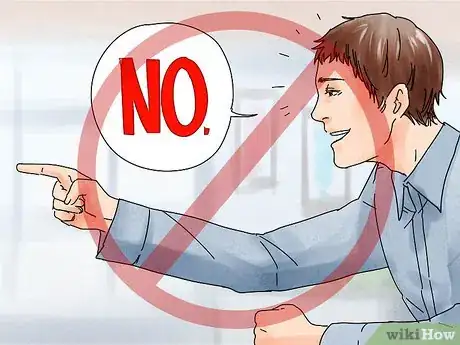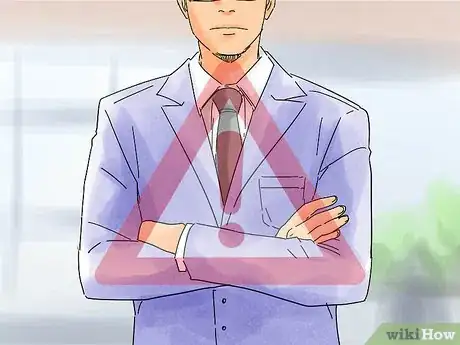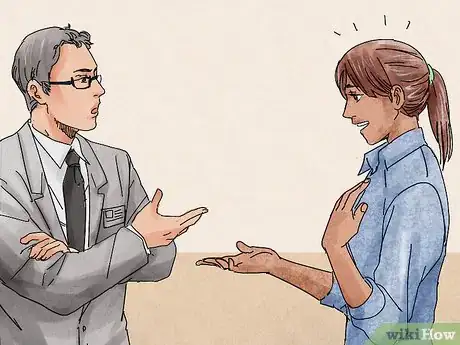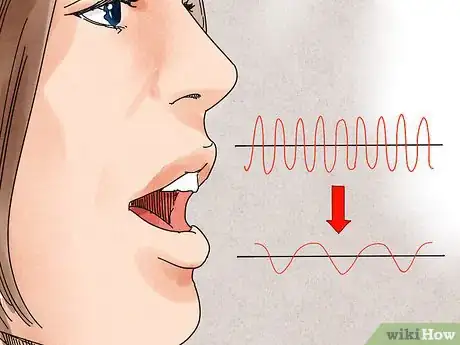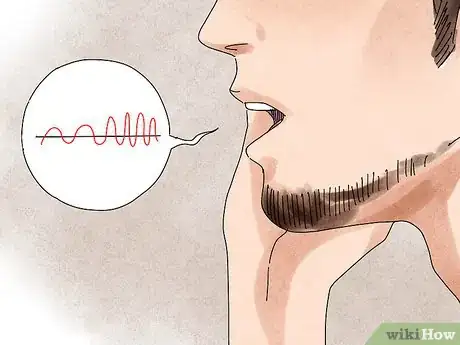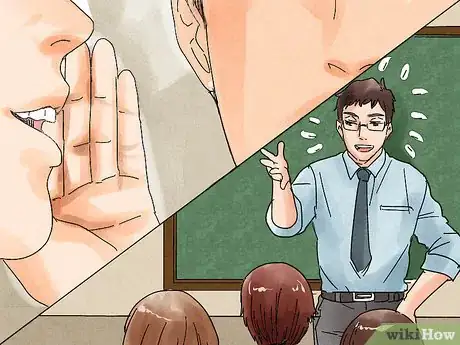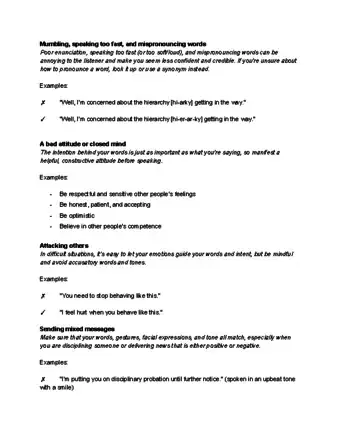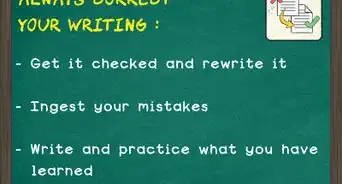This article was co-authored by Gale McCreary. Gale McCreary is the Founder and Chief Coordinator of SpeechStory, a nonprofit organization focused on improving communication skills in youth. She was previously a Silicon Valley CEO and President of a Toastmasters International chapter. She has been recognized as Santa Barbara Entrepreneurial Woman of the Year and received Congressional recognition for providing a Family-Friendly work environment. She has a BS in Biology from Stanford University.
There are 9 references cited in this article, which can be found at the bottom of the page.
wikiHow marks an article as reader-approved once it receives enough positive feedback. This article received 105 testimonials and 92% of readers who voted found it helpful, earning it our reader-approved status.
This article has been viewed 3,753,566 times.
Having good communication skills is important. They can help you with presentations in class, during job interviews, when handling arguments, and in a variety of other situations. Fortunately, there are some tricks you can use to improve your communication skills so you come across as more confident and friendly.
Steps
Understanding the Basics of Communication Skills
-
1Know what communication really is. Communication is the process of transferring signals/messages between a sender and a receiver through various methods (written words, nonverbal cues, spoken words). It is also the mechanism we use to establish and modify relationships.
-
2Have courage to say what you think. Be confident in knowing that you can make worthwhile contributions to conversation. Take time each day to be aware of your opinions and feelings so you can adequately convey them to others. Individuals who are hesitant to speak because they do not feel their input would be worthwhile need not fear. What is important or worthwhile to one person may not be to another and may be more so to someone else.Advertisement
-
3Practice. Developing advanced communication skills begins with simple interactions. Communication skills can be practiced every day in settings that range from the social to the professional. New skills take time to refine, but each time you use your communication skills, you open yourself to opportunities and future partnerships.
Engaging Your Audience
-
1Make eye contact. Whether you are speaking or listening, looking into the eyes of the person with whom you are conversing can make the interaction more successful. Eye contact conveys interest and encourages your partner to be interested in you in return.[1]
- One technique to help with this is to consciously look into one of the listener’s eyes and then move to the other eye. Going back and forth between the two makes your eyes appear to sparkle. Another trick is to imagine a letter “T” on the listener’s face, with the crossbar being an imaginary line across the eye brows and the vertical line coming down the center of the nose. Keep your eyes scanning that “T” zone.
-
2Use gestures. These include gestures with your hands and face. Make your whole body talk. Use smaller gestures for individuals and small groups. The gestures should get larger as the group that one is addressing increases in size.[2]
-
3Don’t send mixed messages. Make your words, gestures, facial expressions and tone match. Disciplining someone while smiling sends a mixed message and is therefore ineffective. If you have to deliver a negative message, make your words, facial expressions, and tone match the message.[3]
-
4Be aware of what your body is saying. Body language can say so much more than a mouthful of words. An open stance with arms relaxed at your sides tells anyone around you that you are approachable and open to hearing what they have to say.[4]
- Arms crossed and shoulders hunched, on the other hand, suggest disinterest in conversation or unwillingness to communicate. Often, communication can be stopped before it starts by body language that tells people you don't want to talk.[5]
- Appropriate posture and an approachable stance can make even difficult conversations flow more smoothly.
-
5Manifest constructive attitudes and beliefs. The attitudes you bring to communication will have a huge impact on the way you compose yourself and interact with others. Choose to be honest, patient, optimistic, sincere, respectful, and accepting of others. Be sensitive to other people's feelings, and believe in others' competence.
-
6Develop effective listening skills: Not only should one be able to speak effectively, one must listen to the other person's words and engage in communication on what the other person is speaking about. Avoid the impulse to listen only for the end of their sentence so that you can blurt out the ideas or memories your mind while the other person is speaking.[6]
Using Your Words
-
1Enunciate your words. Speak clearly and don’t mumble. If people are always asking you to repeat yourself, try to do a better job of articulating yourself in a better manner.
-
2Pronounce your words correctly. People will judge your competency through your vocabulary. If you aren’t sure of how to say a word, don’t use it. Improve your vocabulary by reading new words in daily routine. Look in the dictionary to help you learn how to pronounce a new word.
-
3Use the right words. If you’re not sure of the meaning of a word, don’t use it. Grab a dictionary and start a daily habit of learning one new word per day. Use it sometime in your conversations during the day.
-
4Slow your speech down. People will perceive you as nervous and unsure of yourself if you talk fast. However, be careful not to slow down to the point where people begin to finish your sentences just to help you finish.[7]
-
5Develop your voice. A high or whiny voice is not perceived to be one of authority. In fact, a high and soft voice can make you sound like prey to an aggressive co-worker or make others not take you seriously. Begin doing exercises to lower the pitch of your voice. Try singing, but do it an octave lower on all your favorite songs. Practice this and, after a period of time, your voice will begin to lower.
-
6Animate your voice. Avoid a monotone and use dynamics. Your pitch should raise and lower periodically. Radio DJ's are usually a good example of this.[8]
-
7Use appropriate volume. Use a volume that is appropriate for the setting. Speak more softly when you are alone and close. Speak louder when you are speaking to larger groups or across larger spaces.[9]
Help Communicating Effectively
Community Q&A
-
QuestionHow can I gain confidence and stop mumbling?
 Community AnswerGo out of your way to speak to people as frequently as possible, on whatever topic. Speak clearly and make eye contact. The more you practice, the easier it will become.
Community AnswerGo out of your way to speak to people as frequently as possible, on whatever topic. Speak clearly and make eye contact. The more you practice, the easier it will become. -
QuestionWhy is developing communication skills so important?
 Community AnswerCommunication is important for everyday life. You will need it in order to get a job and buy the things you need. You will also need it to establish new relationships and to resolve conflicts, be they between friends, family members, or romantic partners.
Community AnswerCommunication is important for everyday life. You will need it in order to get a job and buy the things you need. You will also need it to establish new relationships and to resolve conflicts, be they between friends, family members, or romantic partners. -
QuestionHow do I avoid fear when I am speaking to group of people?
 Community AnswerBe confident in what you are saying. Believe in yourself. Take deep breaths and speak slowly.
Community AnswerBe confident in what you are saying. Believe in yourself. Take deep breaths and speak slowly.
References
- ↑ https://www.canr.msu.edu/news/eye_contact_an_introduction_to_its_role_in_communication
- ↑ https://www.frontiersin.org/articles/10.3389/fnhum.2020.00323/full
- ↑ https://open.lib.umn.edu/communication/chapter/4-1-principles-and-functions-of-nonverbal-communication/
- ↑ https://www.helpguide.org/articles/relationships-communication/nonverbal-communication.htm
- ↑ https://www.scienceofpeople.com/shoulder-body-language/
- ↑ https://www.betterhealth.vic.gov.au/health/healthyliving/relationships-and-communication
- ↑ https://www.psychologytoday.com/us/blog/communication-success/201911/do-you-talk-too-fast-how-slow-down
- ↑ https://open.lib.umn.edu/communication/chapter/10-3-vocal-delivery/
- ↑ https://raisingchildren.net.au/toddlers/connecting-communicating/communicating/nonverbal-communication
About This Article
If you want to work on developing your communication skills, practice making eye contact and speaking slowly and clearly whenever you talk to someone. Try practicing in front of a mirror, and take breaks to look up words you don't know in a dictionary. You can also watch videos of public speakers and pay attention to how they animate their voice so they don't sound monotone. For more ways to improve your communication skills, like using hand gestures and body language, scroll down!





